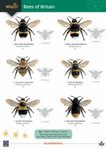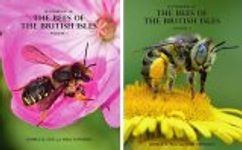Out of Print
By: Alison Benjamin(Author), Brian McCallum(Author)
298 pages, b/w illustrations
![A World Without Bees A World Without Bees]()
Click to have a closer look
About this book
Biography
Related titles
About this book
Honeybees are dying. In America, one in three hives was left lifeless at the beginning of 2008. In France, the death rate was more than 60 per cent. In Britain, a government minister warned that honey bees could be extinct within a decade. A third of all that we eat, and much of what we wear, relies on pollination by honeybees. So if – or when – the world loses its black-and-yellow workers, the consequences will be dire.
What is behind this catastrophe? Viruses, parasites, pesticides and climate change have all been blamed. As has modern monoculture agribusiness. In this timely book, two keen amateur apiarists investigate all the claims and counterclaims with the help of scientists and beekeepers in Europe, America and beyond. They ask the question that will soon be on everyone's lips: is there any possible way of saving the honeybees – and, with them, the world as we know it?
Customer Reviews
Biography
Alison Benjamin is a Guardian journalist. She is deputy editor of the Society and editor of the Environment website. Brian McCallum is studying to become an apiarist.
Out of Print
By: Alison Benjamin(Author), Brian McCallum(Author)
298 pages, b/w illustrations
Customer Reviews:
The authors dont know what a bee is
by Paddy in United Kingdom
Honeybees are dying. (OK YES PROBABLY TRUE) In America, one in three hives was left lifeless at the beginning of 2008. In France, the death rate was more than 60 per cent. In Britain, a government minister warned that honey bees could be extinct within a decade. A third of all that we eat, and much of what we wear, relies on pollination by honeybees. (NOT TRUE MUCH RELIES ON POLLINATION BY OTHER SPECIES OF BEE IN THE UK WE HAVE 250, THE POLLINATION BY VARIOUS DIPTERA HAS NOT BEEN STUDIED) if - or when - the world loses its black-and-yellow workers, (HONEY BEES ARE NOT BLACK AND YELLOW) the consequences will be dire. Whilst there is an issue of pollinator decline and the repercussion is dire, find a book by an ecologist rather than a honeybee farmer.
























